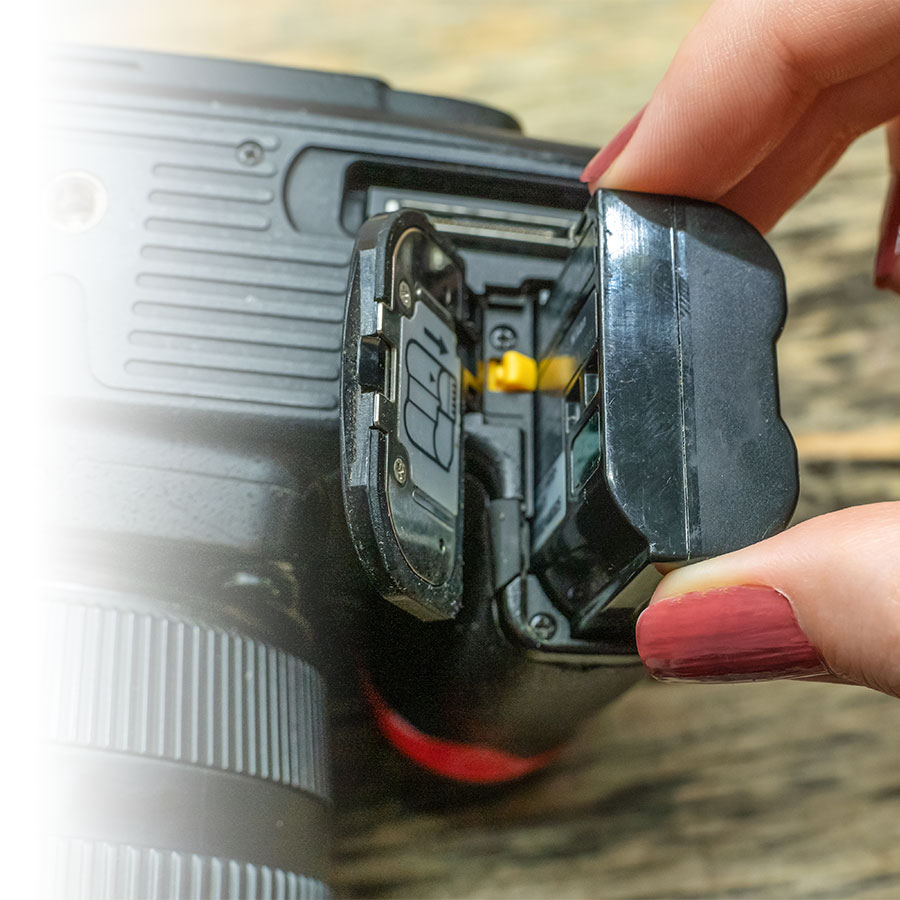You couldn’t do much with your camera without electrical power. Knowing how to choose, maintain and store your batteries can extend their life and avoid you many a frustrating photo outing.
Most digital camera batteries will allow you to take about 400 shots before needing to be recharged. Battery life specifications are usually indicated in your camera’s manual.
Choosing batteries
Most cameras are now equipped with a lithium-ion battery pack—which is more durable and resistant than traditional batteries. However, some devices still use alkaline batteries. If this is the case with your camera, stick to rechargeable batteries, otherwise your photos will wind up costing you a lot.
It is recommended to have one backup battery charged and with you at all times. If you want additional batteries without ruining your wallet, you can always buy sub-brands. They’re easy to find on the Internet. But, remember to check:
- Compatibility with your camera.
- The quality of the sub-brand in question—some are better than others. (To do so, consult online user reviews and check the dealer’s credentials.)
- Its capacity, expressed in milliamps per hour (mAh). The higher, the better. Though charge time will also be longer.
Proper battery maintenance
We tend to ignore batteries until they give out on us. Preventive maintenance can help you avoid frustrating situations.
- If you use a lithium-ion battery pack, take note that a 24-hour charge before first use is not necessary.
- Try to maintain a 40% minimum charge rate and never let it completely discharge.
- Avoid cold; keep it in an inside pocket of your coat to limit discharge.
- Clean the casing within your device with a dry cloth as the presence of dust on the connectors can reduce battery life.
Extending battery life
You're on vacation and—oh, the horror! Your battery is almost empty and your hotel is a two-day walk away. Don’t panic: limit battery consumption by first disabling all non-essential functions, such as luminosity or automatic photo review for those with LCD viewfinders—in fact avoid using the viewfinder altogether—be it to take, review or sort shots. You can also try turning off your camera’s auto-focus, burst mode or built-in flash—all of which are power-hungry features.
Battery storage
- While batteries hate cold, they absolutely loathe heat. Remember not to leave them overnight in the charger, as they’ll eventually overheat and this will reduce their lifespan. Store charged batteries in a dry place.
- Never store discharged batteries as they continue to lose charge even when not connected to a device. Storing a discharged battery will render it unusable for your next photo shoot.
Repairing a battery indicator
Has your battery charge indicator lost its accuracy? Recalibrate it by completely draining your battery and giving it a full charge. While this may not be very good for the battery, it will improve the battery charge indicator’s accuracy.

